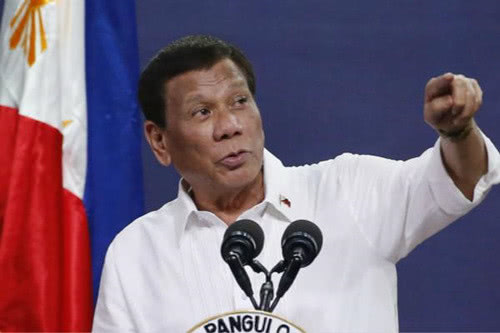
By Zhang Liulu
The Philippine Presidential Spokesperson Salvador Panelo recently revealed that President Rodrigo Duterte will ask its senior diplomat to notify Washington of Manila’s consideration of terminating the Visiting Forces Agreement (VFA) signed between the two countries in 1998. By allowing American ships and planes to enter and exit the Philippines in the name of participating in joint military exercises, the agreement accorded legal status to America’s military presence in the country after the US-Philippines Military Base Agreement came out of effect in 1991.
The fuse that prompted Pres. Duterte to make the decision was Washington’s refusal to grant atravel visa to Sen. Ronald dela Rosa, former Philippine National Police (PNP) Chief, one of his “close political allies”, and a major enforcer of drug war, a priority on Duterte administration’s agenda.
The Philippines has long been plagued by drugs. Serving as mayor of Davao on the island of Mindanao, a seriously drug-ridden area, for more than 20 years, Mr. Duterte knows only too well the damages of drugs to his country. Therefore, since taking office more than three years ago, he has launched the crackdown on drugs with an iron hand, not only honoring his campaign commitment to the constituents, but also largely improving the political and social environment of Philippines. Whatever the comments from outside world will be, Mr. Duterte is determined to continue fighting drugs as, in his opinion, what concerns the authority of his administration and the national dignity of his country.
Behind this diplomatic conflict is America’s constant interference in Manila’s internal affairs through the exercise of “long-arm jurisdiction”, which has touched Duterte’s political red line and deepened the feud between the two countries. The cancellation of Rosa’s visa is just the latest case of their unending diplomatic disputes in recent years.
At the end of 2019, the US expressed support for Leila de Lima, former Secretaryof the Philippine Department of Justice, in its 2020 government budget act, which drew strong protest from Manila. At a press conference on December 27, 2019, Philippine Presidential Spokesperson Salvador Panelo said that Mr. Duterte would officially reject American President Trump’s invitation to visit the US, making him the first president since the Philippines became an independent state who has not visited the US during his tenure.
Where is the Philippines-US military alliance going after the VFA is terminated?
Historically speaking, the Philippines-US military relation has been undulating with different characteristics in different historical periods. The cooperation between Arroyo and George W Bush on counter-terrorism pushed their military relation to quickly heat up, and the two countries had a honeymoon of bilateral ties under the consensus of America “returning to Asia Pacific” when Aquino III and Barack Obama were in power. However, after Mr. Duterte and Donald Trump stepped up, their military relation came to a chilling period of adjustment.
Faced with a complicated domestic situation and an increasingly straining global strategy, the Trump administration has been “contracting” in general in the international community, whereas the pragmatic Duterte administration has sought cooperation with countries like China and Russia to ensure a stable external environment. As favorable factors for military cooperation are diminishing, a political war of words may add new uncertainties to the US-Philippine relationship.
Disclaimer: This article is originally published on haiwainet.cn, which is the website of Overseas Edition of the People's Daily. The article is translated from Chinese into English and edited by the China Military Online. The information, ideas or opinions appearing in this article do not necessarily reflect the views of eng.chinamil.com.cn.













